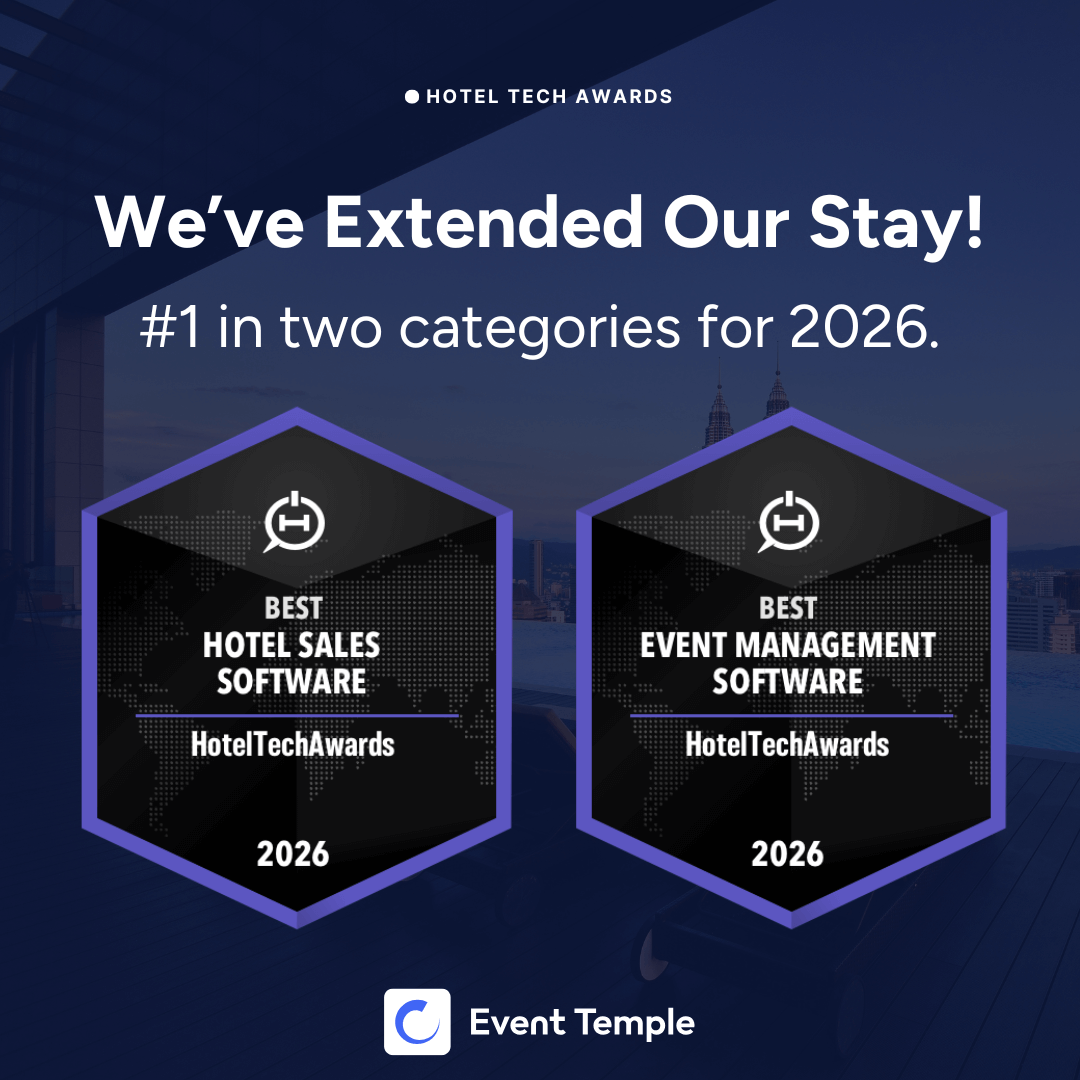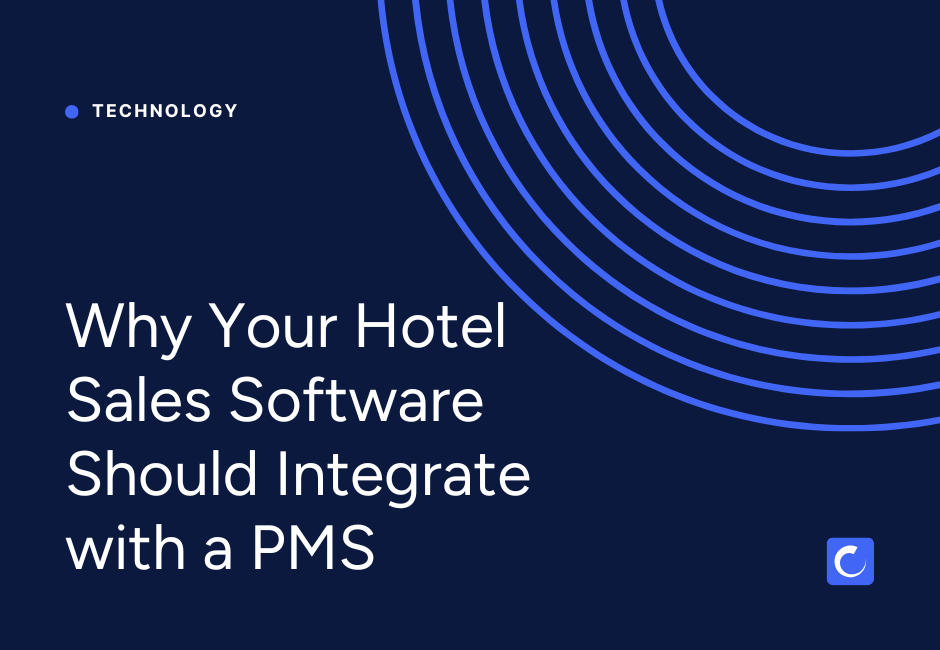Is it that time of year again? When management begins planning for the year ahead and scrutinizing every aspect of the business? As the hotel industry continues to adapt and evolve in this ever-changing landscape, there is a pressing need to maximize revenue. The question is, how can hotels increase their hotel sales and accelerate their revenue in today’s time??
Over the years, hotel themes have shifted from prosperity to panic to being overwhelmed, with inflation thrown in for good measure. Building a sustainable, robust, and revenue-generating sales strategy can be challenging with many new team members in new roles and some even new to the industry.
But fear not; we're here to help! Today, we'll discuss the three crucial components of a successful hotel sales strategy, outlining what they are and why they matter.
PS: This blog post is an overview of our Ultimate Hotel Sales Guide, which discusses this in intense, in-depth detail. Check out the three chapters of our Ultimate Hotel Sales Guide!
[BONUS: Free Target Persona Template and Free BEO Templates included!]



Without further ado, let’s dive right in:
Step 1: Pre-selling - Start off on the right foot
A hotel sales strategy requires groundwork before making the first sale to achieve revenue targets. Setting up the optimal environment to prepare your sales team for success is key. Thus, it's critical to focus on pre-selling pillars. What are these pillars, you may ask? We'll dive into them and explain their importance.
a) Target Persona
The cornerstone of a prosperous hotel sales strategy is comprehending your hotel's target persona - the individuals staying at your establishment. This entails comprehending their demographic (age, gender, income), booking intentions, interaction channels, and geographical location, as well as the reasons why they would or would not book with you (goals and frustrations). This valuable information can be arranged in a target persona template (as displayed below) to facilitate sharing with your team.

[Reminder: This template is available with Chapter 1 of our Ultimate Hotel Sales Guide!]
b) Sales Team Structure
Designing the right sales team structure is critical for achieving hotel sales success. To accomplish this, you need to identify the required number of employees and specific roles to target potential customers effectively. To answer these questions, you must consider several key data points, including your sales targets (dollar value), required leads, average revenue per account (ARPA), lead-to-sale conversion rate, and the number of leads a salesperson can manage daily. Our guide offers in-depth insights into leveraging these numbers to achieve your sales targets efficiently.
c) Distribution strategy
After creating a sales team structure, it's essential to focus on the channels that the team will use to connect and communicate with the target persona. To determine the most effective channels, consider where your target audience spends most of their time - online or offline. It's crucial to weigh the cost of acquisition and return on investment for each available channel. Ask yourself important questions like which channels your competitors are using, which channels are cost-effective, and which channels have the highest conversion rates. A thorough analysis of these questions will help you create a successful hotel sales strategy.
d) Tech Stack
The final step of the pre-selling stage is ensuring that you have the necessary technology to sell effectively. The type of hotel and services offered will dictate the required tech stack, but the essential software for a hotel sales strategy usually includes a Property Management System, Sales & Catering (such as Event Temple), and Revenue Management.
Step 2: Selling - How and where to sell
With the crucial pre-selling pillars in place, it's time to shift your focus to the selling stage. For a comprehensive understanding of optimizing each channel, including effective strategies, tips, and tricks, refer to Chapter 2 of our Ultimate Hotel Sales Guide. For now, we will discuss the two categories of channels and attribution.
a) Online vs Offline channels
Your online channels include:
- Other social networks
- Your website
- Online Travel Agencies
- Email Marketing
- Advertising
Your offline channels include:
- Traditional print media
- Radio and TV
- Trade shows and conferences
- Seasonal events
b) Attribution
While all the abovementioned channels can contribute to hotel sales conversions, some channels may serve as touchpoints rather than the final conversion point. It ultimately depends on your hotel's target persona and preferred communication channels. For instance, if face-to-face interactions are crucial to your hotel's target persona, you can use a combination of online and offline channels to create awareness and initiate conversations, followed by offline channels to finalize the hotel sales.
It's important to acknowledge that all channels play a role in the hotel buyer journey and deserve attribution, some for generating awareness and others for conversion. To understand the hotel buyer journey completely, it's vital to have a hotel sales system to attribute all touchpoints rather than just the final one.
Step 3: After the Sale
Congratulations on securing the sale! But don't forget, your hotel sales strategy doesn't end there. Ensuring a positive post-sale experience is important as it can greatly impact your current and future revenue. To make sure your customers have a smooth and enjoyable experience, focus on these areas:
- Onboarding: Set clear expectations and ensure a seamless transition from sales to delivery.
- Communication: Keep customers informed and updated throughout the process.
- Support: Provide exceptional customer support to help resolve any issues or concerns.
- Feedback: Gather customer feedback to improve future experiences and identify areas for improvement.
By prioritizing these areas, you can deliver a top-notch post-sale experience and set yourself up for long-term success.
a) Crush the sales hand-off
Have you ever watched a 4x100m relay race at the Summer Olympics? The race involves a team of four runners passing a baton to each other to complete a 400m track as fast as possible. One crucial mistake of dropping the baton could cost the fastest team the race. Similarly, in hotel sales, you need to pass the baton effectively to the next team, from pre-selling to selling to post-sale. Once the sale is made, it's crucial to pass all customer information and preferences to the rest of your team, whether it's the front-desk team to have requests ready upon welcome, the events team to plan their big day, or a reservation team member to assist in booking future dates.
A sales CRM could be helpful to add to your tech stack considerations for effective communication and data management.
b) Banquet Event Orders, trust us!
To ensure an effective hotel sales strategy, presenting customer information professionally and organizationally is crucial. This is particularly important for event sales, where customers need easy-to-understand information. Having a Banquet Event Order Template readily available can help keep things organized for both the customer and your team.

c) Finally, focus on converting your customers into advocates.
Looking to increase revenue and customer loyalty for your hotel? Implement a hotel sales strategy that turns happy customers into repeat guests and advocates. Start by following up with a thank-you message after each stay and consider sending additional messages to corporate guests to maintain the relationship.
Introduce a loyalty program offering perks and benefits to encourage guests to book again. This incentivizes repeat visits and serves as a marketing tool for your sales cycle. According to Nielsen's Global Annual Marketing Report, 89% of consumers trust recommendations from people they know. Take advantage of this by setting up a customer referral program and rewarding advocates.
Discover more strategies in Chapter 3 of our Ultimate Hotel Sales Guide to increase your fan base and revenue. Now that you understand the three key steps to building a successful hotel sales strategy, it's time to create one for your own team. Share your success stories with us!



